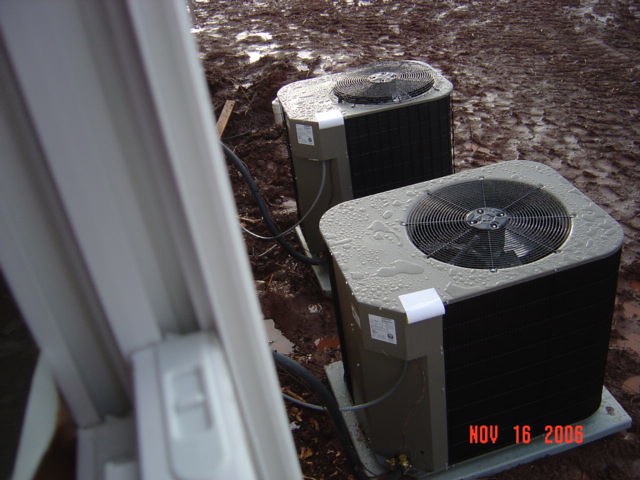Guide to HVAC leakages
Water leakages can be a common HVAC Issue. (Photo Credits)
Water dripping from an HVAC Unit is not an uncoomon issue for homes with HVAC systems. However, it is definitely a concern that should be addressed immediately, lest it can cause more damage to the HVAC system itself.
So what should a homeowner do once he discovers water leaking and pooling near the HVAC Unit? The answer is to immediately turn off the unit, and ask for professional assistance. Self-troubleshooting will not work here, and could be even more counter-productive. In the first place, this issue would not have taken place if the HVAC system is routinely inspected and maintained by a service professional.
(Related Article: Decoding foul HVAC Odors)
While waiting for the technicians to arrive, the homeowner may want to check out the drain pan of the HVAC Unit. BobVila.com recommends this step, as an initial procedure to undertake once a water leak is noticed. Plumbing Association of San Diego
"Located directly underneath your unit, the drain pan catches the condensation that emerges normally from running your air conditioner. If it's cracked or otherwise damaged, it can't do its job—soon after, you'll start to notice your air conditioner leaking water. So, follow along the edges, paying special attention to the corners for breaches. (Tip: Use a flashlight for better visibility, since the cracks may be small.)"
Check out the rest of the article here.
Possible reasons why an HVAC is leaking
According to Popular Mechanics an overflowing pan is one of the most common reasons for poling water or rips in the HVAC system.
"The first cause—the overflow pan—is easily detectable by simply using a flashlight. The pan is a piece of equipment that catches any condensation from the A/C unit; if you're noticing a leak, carefully inspect the overflow pan for damage. Check each corner, along the outside edges, and, of course, directly above the wettest spot. Small holes and cracks can be patched with epoxy glue, but it's usually best to replace a damaged overflow pan."
Read the rest of the article published by Popular Mechanics here.
Related HVAC and Plumbing Repair and Installation Services:
San Diego, California Plumber Near Me
Air Conditioning San Diego, California Call Now
Sink and Drain San Diego, CA Emergency Plumber
Rancho Bernardo Plumber DiamondAce Contractors Free Estimate
City of El Cajon Plumber More Info
DiamondAce Plumber Now Lemon Grove Check Website
A/C And HVAC Compact Appliance meanwhile enumerated the possible reasons why HVAC units are leaking. It emphasized though, that no matter the possible underlying cause, the leakage has to be dealt with immediately to avoid bigger repair issues.
(Related Article: The Consequences of hiring an Unlicensed HVAC Technician
"One of the major ways your air conditioner works to cool your home is by pulling humidity from the air. The cold evaporator coil of your indoor unit is designed to collect this condensation and drain it away. When everything is working as it is supposed to, the water runs down the coil into a pan which leads to another drain. The ultimate destination of all of this collected water is either outside of the house or into your plumbing drain. One of the most common ways the evaporator coil can malfunction is when it becomes dirty. Once a coil becomes coated in dirt, dust, mold or other debris, the water is no longer bonded as tightly to its surface, and will drip on the ground. The water will also bond with the dirt and grime, mixing it in with the puddles of condensation on the floor of your house."
Take a look at the other reasons cited here.
Routine maintenance and inspection is the key to avoid leakages and other costly HVAC repairs.
Diamond Ace Contractors
5052 Genesee Ave, San Diego, CA 92117
(888) 231-1086
Diamond Ace Contractors San Diego Drain Cleaning Service
The post What to do when water leaks from HVAC appeared first on Blue Diamond Plumbing.

No comments:
Post a Comment